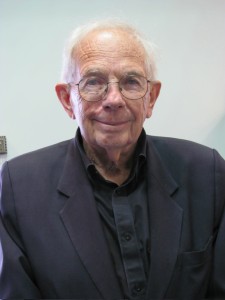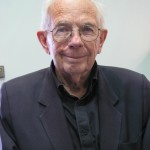 The house not unknown to throngs of polticos and well known Alaskans was out-thronged with them on Saturday afternoon, where hundreds showed to wish former Gov. Bill Sheffield a happy 85th birthday. A Democrat in a Republican state, a staunchly pro-union businessman, pro-development, pro-choice, pro-money, and an active contributor to candidates in both parties, Sheffield has always eluded ideological labels, and it showed Saturday afternoon.
The house not unknown to throngs of polticos and well known Alaskans was out-thronged with them on Saturday afternoon, where hundreds showed to wish former Gov. Bill Sheffield a happy 85th birthday. A Democrat in a Republican state, a staunchly pro-union businessman, pro-development, pro-choice, pro-money, and an active contributor to candidates in both parties, Sheffield has always eluded ideological labels, and it showed Saturday afternoon.
Gov. Sean Parnell and his wife Sandy made an appearance. Former Gov. Tony Knowles and his wife Susan were there.
Reps. Lindsey Holmes, Mia Costello, and Bill Stoltze formed a Republican cabal with Sens. Lesil McGuire, and Kevin Meyer.
All of whom were in spitting distance of Vic Ficsher, Jane Angvik, Jana Varratti, Nancy Groszek, and Mike Szwmanski, to name a few prominent Dems.
There didn’t appear to be a love-fest between the two factions, but nobody that I saw at least got a drink thrown in his or her face.
Mayor Dan Sullivan showed as did former Anchorage Mayor Tom Fink, the staunchest of staunch conservatives who Sheffield beat in the governor’s race and remains one of Sheffield’s best friends.
Sheffield’s Lt. Gov. Stephen McAlpine, who hates to be called Steve, was there. Steve is perhaps the only lieutenant governor who was serious about the Division of Elections. Also present: Diane Adams who is the wife of former Rep. Al Adams, Jim and Marty Weeks, John and AJ Shively, Kelly Campbell, the great organizer and most faithful friend ever “Mother” Laurie Herman and Dan Hickey , Paul Quesnel, Al and Ann Parrish, Curtis Thayer …The list goes on. (And of course, no party is complete without a Margy Johnson hat sighting.)
Some enterprising society page columnist rag would have had a field day at the event, and might have carried a notebook, taken some notes, and snapped a few pictures, if nothing else to remind herself that Democrats in the state once actually mattered.
As it was, I spent my time either standing at the buffet line or sitting snarfing my spoils.
Regardless of the lack of documentation, one thing would have been apparent to even the most bloated and wine soaked observer — and there were plenty of them – that all of these people, all of them with all of their various and sundry and often conflicting agendas and personalities, that all of them could all be together in goodwill is a testament to the man who brought them all together.
From Spokane, Sheffield began his career selling appliances at Sears. He worked tirelessly, leased a hotel and turned his business into the largest hotel chain in the state. He had enormous energy and determination, but he was never a natural politician. He had a nearly debilitating speech impediment and did things like making enemies of government workers by making them wear ties and cutting their salaries..
What is nearly inconceivable now, one of the biggest uproars caused by his tenure, aside from a nasty Republican-hyped non scandal, was that he consolidated Alaska’s four time zones into one. What is also inconceivable, he is the only governor to significantly cut the budget. This at a time when oil went below $10 a barrel.
He did this and also oversaw the state’s purchase, from the federal government, of the Alaska Railroad. He also oversaw the development of Red Dog Mine and Bradley Lake dam and cracked down on air and water pollution problems in Anchorage and Fairbanks. He cared deeply about rural Alaskans and traveled all over the state to reach out to them.
Sheffield didn’t get a second term. He lost to Steve Cowper, who didn’t even own a house in Alaska and only served one term. When Cowper left, he left the state for good.
The party was said to go on well after I left. Songs were sung. Memories shared. Tears were shed. A few began to dance. Sheffield joined them. At his party, it didn’t matter what party they belonged to. He danced with them.
Contact Amanda Coyne at amandamcoyne@yahoo.com









